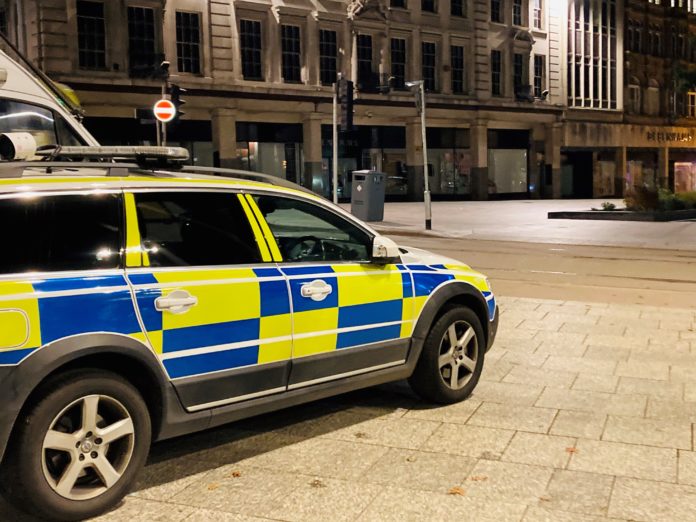
By Matt Jarram, Local Democracy Reporter
The number of people feeling safe at night in parts of Nottinghamshire has “deteriorated significantly over the last year,” according to a report.
Police and Crime Commissioner Caroline Henry (Con) and Nottinghamshire Police will discuss crime across the area at a Police and Crime Panel meeting on Monday, March 28.
A report published ahead of the meeting looks at areas of marked improvement as well as areas of concern from the 12 months to December 2020 to the same period up to December 2021.
It shows the proportion of residents which responded to a police and crime survey who felt ‘very or fairy safe’ outside in their local area after dark has “deteriorated significantly” over the last year.
Most notably the numbers have dropped in Bassetlaw, Gedling, and Nottingham.
Across the whole of Nottinghamshire, around 56.8 per cent of people felt safe at night compared to 63.1 per cent the previous year.
At force level, reductions in feelings of safety were reflected across both the male and female population.
The report added: “Feelings of safety in the area after dark remain highest among males (66 per cent) and residents from Rushcliffe (76 per cent) and Broxtowe (66 per cent).
“By contrast, feelings of safety after dark remain lowest among females (48 per cent), people aged 16 to 34 (50 per cent) and in Nottingham (50 per cent) and Bassetlaw (50 per cent).”
Mrs Henry has previously said she plans to ensure more CCTV is funded in hot spot crime areas, and a surge in cameras for the Arboretum, Hyson Green, and Radford areas is ongoing.
Levels of neighbourhood crime continue to fall across Nottinghamshire, with Nottingham (-3.4 per cent) and Mansfield and Ashfield (-3.3 per cent) seeing the most significant reductions over the last year.
Police recorded neighbourhood crimes have similarly fallen by 16 per cent over the last year, with burglary (-22 per cent) and theft from person (-22 per cent) offences having fallen by more than a fifth.
Police recorded violence with injury offences increased during the summer of 2021 alongside the relaxation of coronavirus restrictions and the reopening of the night-time economy.
Despite this, overall levels of violence with injury remain comparable to those recorded in 2020.
Violent knife crime offences were at 720 in the 12 months to December 2020 compared to 745 in the 12 months to December 2021.
The report adds: “Levels of violent knife crime have increased by 3.5 per cent over the last year, driven by increases in the latest quarter.
“This is largely attributable to the easing of Covid restrictions, the restart of the night-time economy and evidence of increases in gang tensions which is being closely monitored.”
The report states that further reductions may be seen moving forward as Operation Windblown offences – looking at spikings recorded in the city – are identified and removed from the knife crime data.
Average rates of homicide have fallen by 25 per cent over the last year, with 2021 showing “the lowest level ever recorded in Nottinghamshire”.
Shootings have also seen further reductions and overall reductions over the two-year period of 12.9 per cent.
Both the number and proportion of rape offences resulting in a police charge or summons has increased markedly over the last year.
Still, around 37 per cent of rape offences do not progress on account of the victim not supporting or withdrawing support for further police action, the report added.
The number of police officers has also increased, with the force achieving its target of recruiting 357 additional officers a year ahead of schedule.
The findings will be discussed and scrutinised by councillors at the Police and Crime Panel at County Hall on Monday, March 28.

















